The monthly fundamental and price developments of selected cryptocurrencies, including Bitcoin (BTC), Ethereum (ETH), Stellar (XLM), Solana (SOL) and Stacks (STX) in collaboration with Swiss digital asset specialist 21Shares AG.
Each month, the research team highlights the cryptocurrencies of the month that have increased or decreased in value by more than 15%. Using a data-driven approach, the key developments and events that led to the price movements are highlighted.
XRP (XRP)
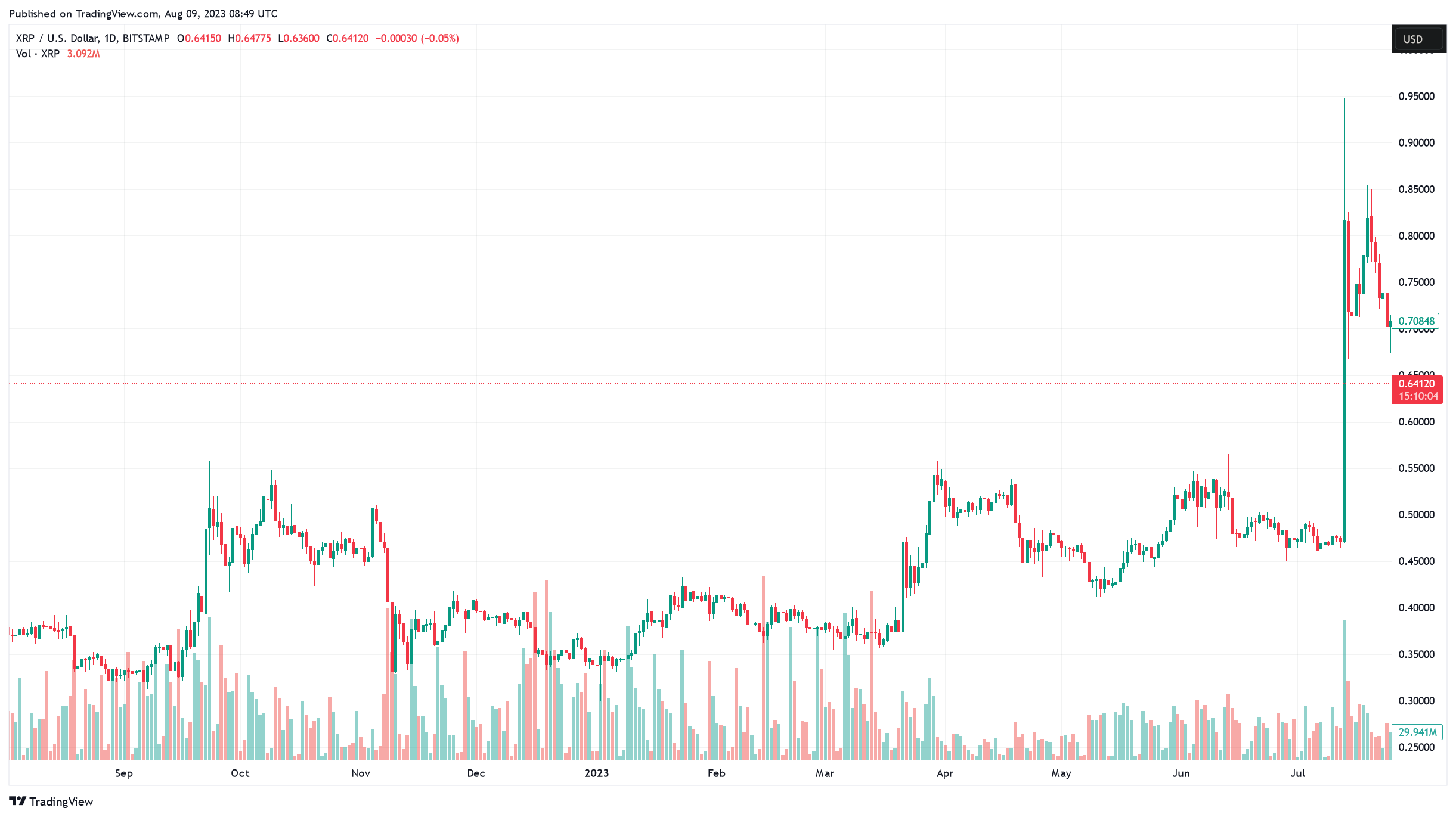
XRP traded up 47.58% in the past month. On July 13, U.S. District Court Judge Analisa Torres issued a summary judgment arguing that the XRP token, by itself, was not a security under U.S. law. Specifically, Judge Torres distinguished between the target of an investment contract (e.g., XRP as a token) versus the sale and marketing of that asset (e.g., the investment contract around the sale or offer of XRP). The former was not deemed a security, but the latter was in certain circumstances, such as institutional sales. Crucially, "programmatic sales" (e.g., XRP sold on exchanges) did not constitute a securities offering, which prompted centralized exchanges like Coinbase, Kraken, Bitstamp, and Crypto.com to relist the token in the U.S.
Stellar (XLM)
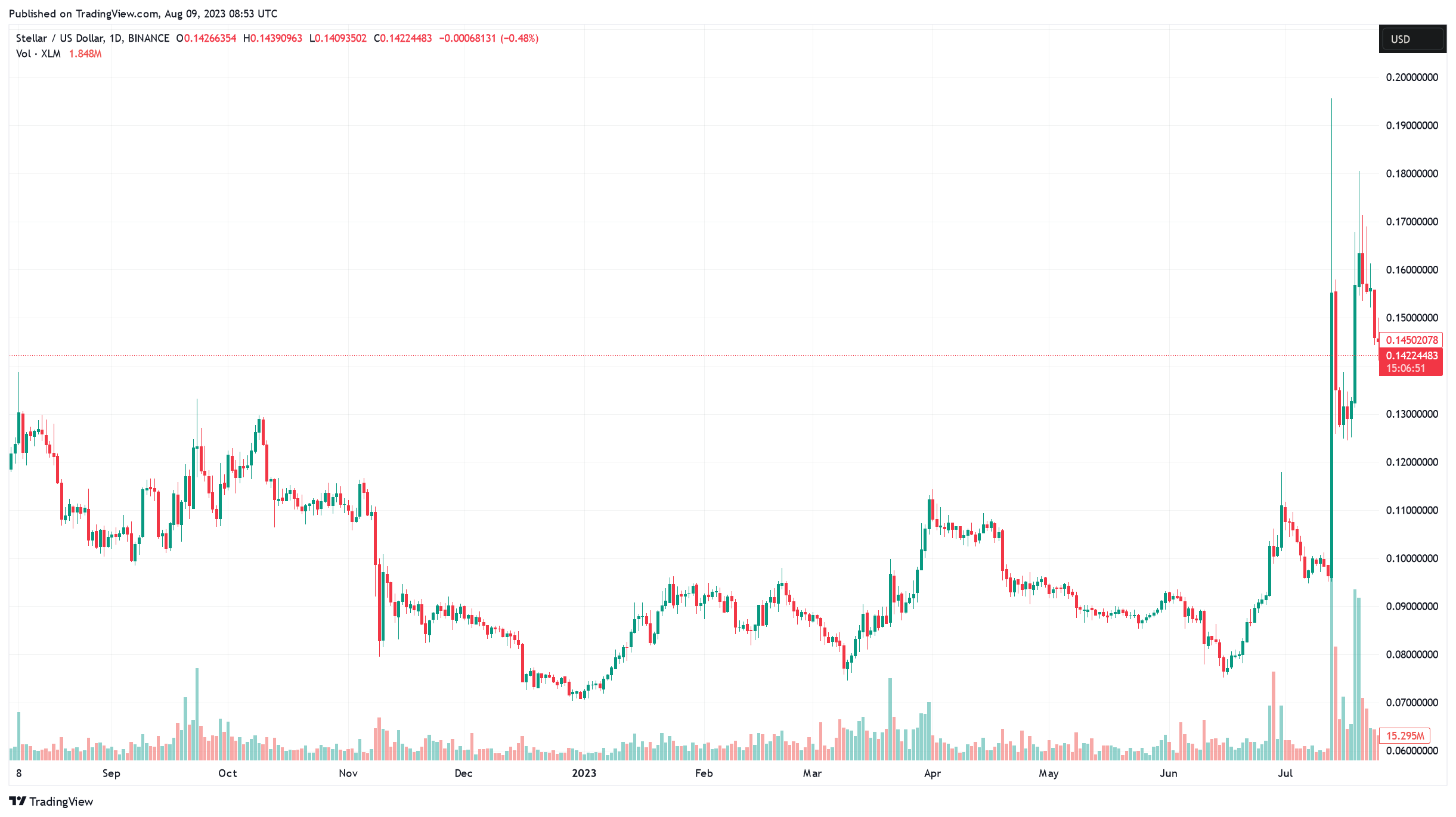
Stellar's native token XLM traded up 35.79% over the past month as the network continues facilitating cash-to-crypto on and off-ramps. Bitso, a leading Latin American crypto exchange, integrated Stellar's Anchor Network to enable businesses worldwide to transact in USDC to Argentina, Colombia, and Mexico, where Bitso has a direct connection to local banking systems. In addition, Lemon – a mobile wallet with more than 1.7 million users in Argentina, Brazil, Mexico, Colombia, and Peru – integrated USDC on Stellar, allowing users to perform seamless peer-to-peer payments or hold the asset as a digital store of value.
Solana (SOL)
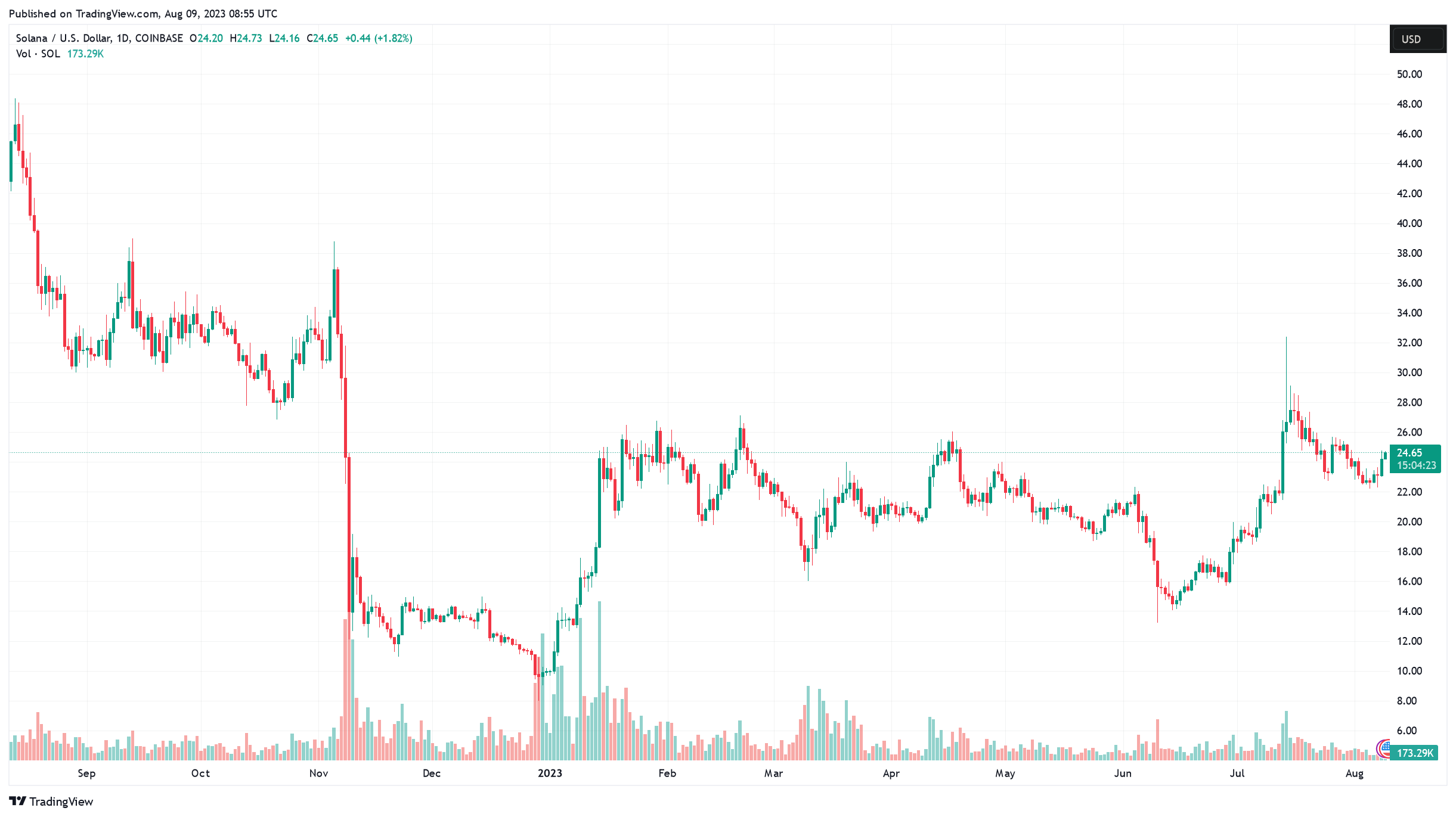
Solana (SOL) rallied 25.52% in July. On July 19, Solana Labs introduced Solang, a new compiler that allows developers to build on Solana with Solidity. Solang will help bridge the gap between EVM developers and the Solana ecosystem, as Solidity is the primary programming language used for Ethereum smart contracts. Solana's effort toward supporting multiple programming languages for smart contracts (Rust, C, Python, and now Solidity) is incredibly positive, as it invites a broader skill set of developers entering the ecosystem – a leading indicator of value creation. In addition, Solana Labs also unveiled GameShift, a unified game development API designed to simplify and accelerate Web 3 game production.
Uniswap (UNI)
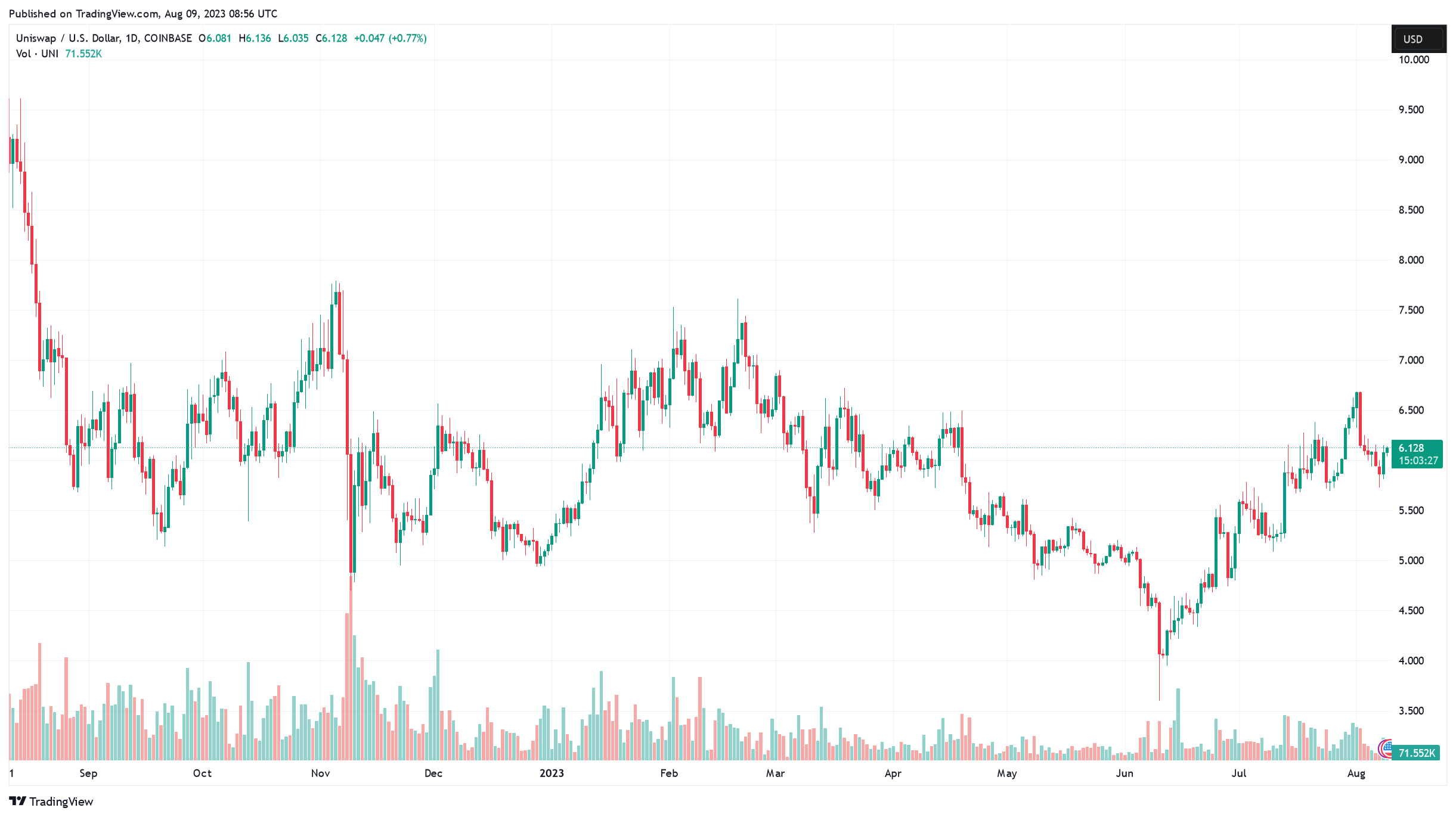
Uniswap (UNI) rose 23.86% over the past month amidst exciting developments. At the Ethereum Community Conference (EthCC) in Paris, Uniswap Labs introduced UniswapX. This open-source, auction-based protocol aggregates on-chain and off-chain liquidity by outsourcing liquidity routing to an open network of third-party fillers who compete to execute trades. Today's most pressing issue affecting DEXs is Maximal Extractable Value (MEV), the profits validators extract by re-ordering, inserting, or censoring transactions within a block. UniswapX offers gas-free swaps and internalizes MEV as a price improvement for end-users. In addition, UniswapX will enable cross-chain swapping later this year, allowing traders to specify if they want to receive native assets on the destination chain rather than "wrapped" or synthetic tokens.
Chainlink (LINK)
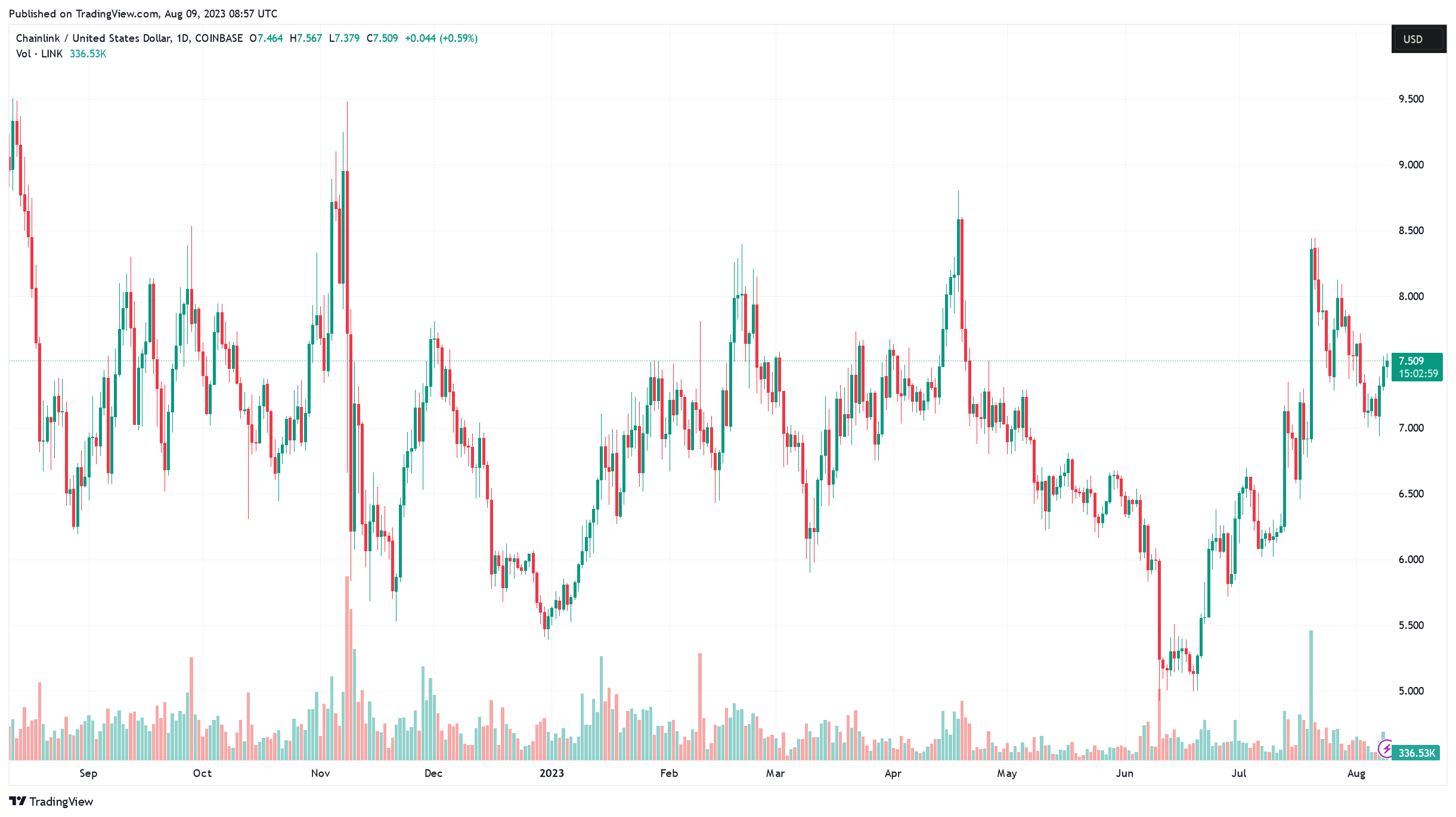
Chainlink (LINK) rose 19.65% over the past month. On July 17, Chainlink launched the "early access" phase of its Cross-Chain Interoperability Protocol (CCIP) in the Avalanche, Ethereum, Optimism, and Polygon blockchains. As an increasing number of blockchains gain prominence, adopting an industry standard for cross-chain communication is essential to avoid siloed networks, liquidity, and poor user experience. CCIP aims to fill this gap, fitting into the broader off-chain middleware infrastructure that Chainlink has built since 2017. As such, it takes advantage of pre-existing innovations, including off-chain reporting (OCR) and Decentralised Oracle Networks (DONS). CCIP also features additional layers of protection via the Active Risk Management (ARM) Network and transfer rate limits.
Ethereum (ETH)
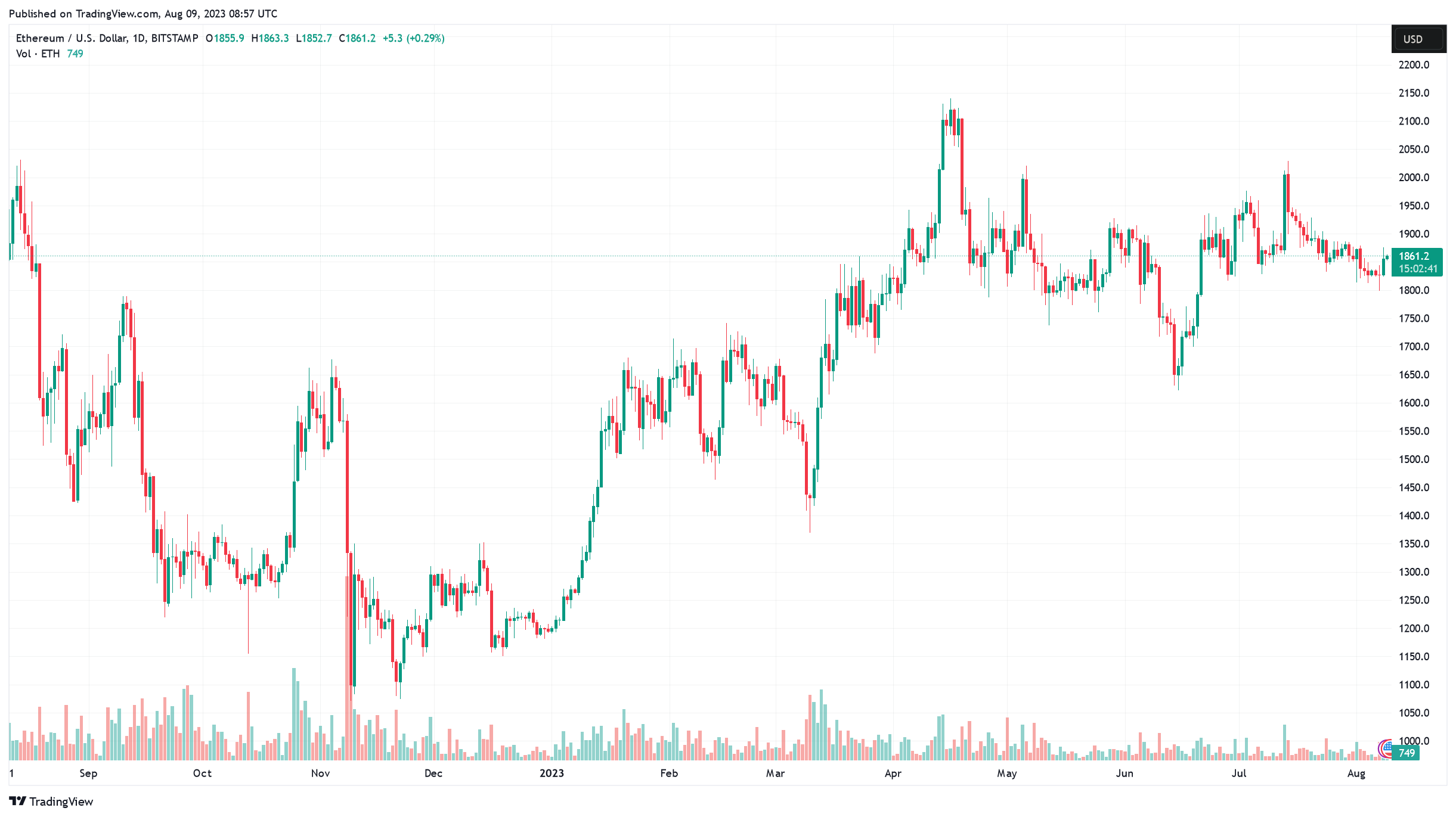
Ethereum traded down 3.97% over the past month. The sixth edition of the Ethereum Community Conference (EthCC) took place in Paris from July 17-20. EthCC was filled with exciting announcements, including Lens Protocol V2, Gnosis Pay, and the already mentioned Solang, UniswapX, and Chainlink's CCIP. Regarding infrastructure developments, July was a remarkable month for scaling solutions building on top of Ethereum - both Base and Mantle Network mainnets opened for builders ahead of general availability later this year, while Celo announced it would migrate from an EVM-compatible L1 to an Ethereum L2, leveraging the OP Stack. On a final note, ETH's staking ratio surpassed 20% in July, with ~25 million ETH ($46 billion) now securing the network.
Bitcoin (BTC)
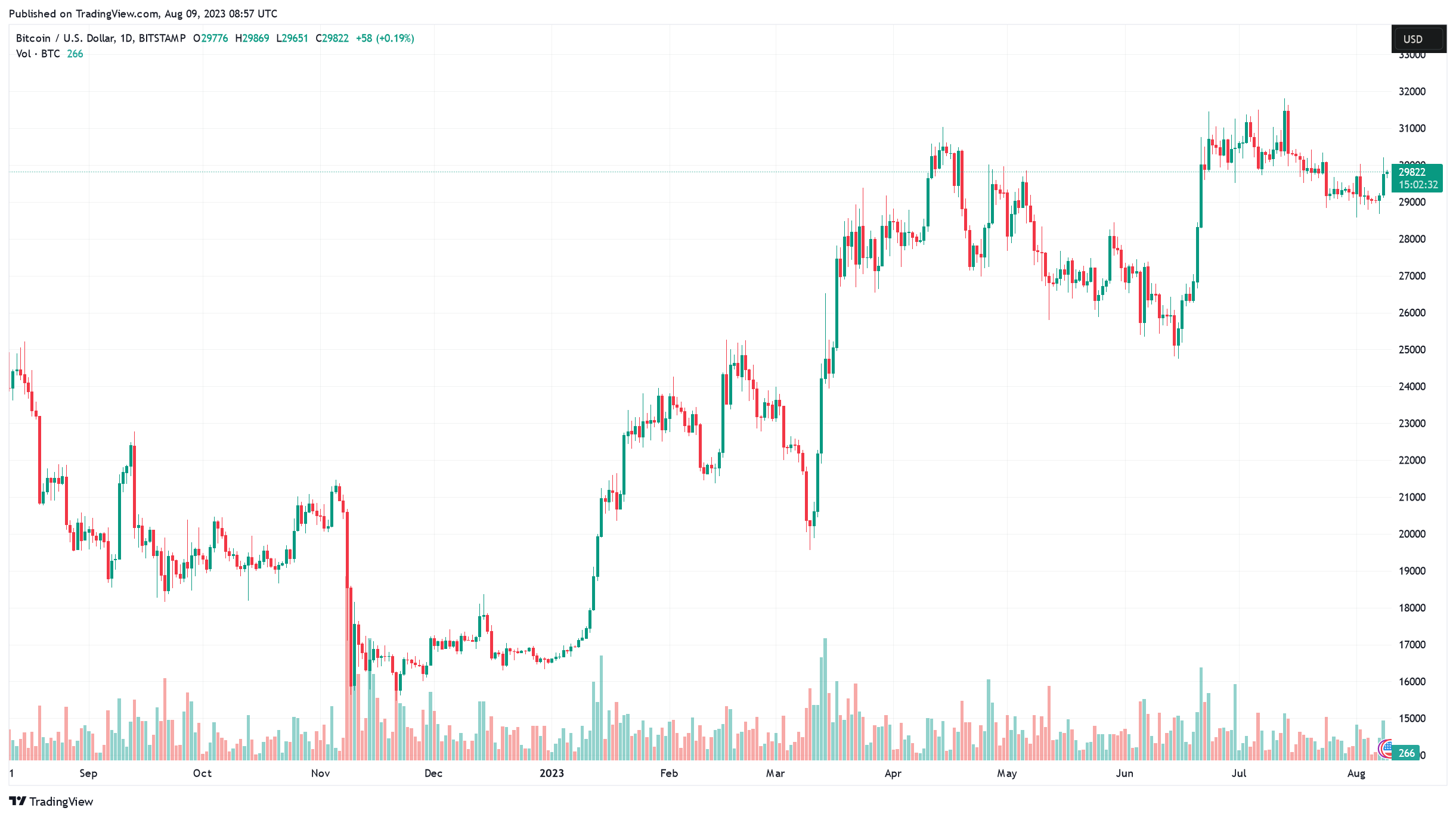
Bitcoin traded down 4.09% over the past month. On July 12, the U.S. government sent 9.8k BTC ($295 million) from the March 2022 seizure of James Zhong's assets to a potential Coinbase address. For context, a court filing revealed that the U.S. government sold ~9.9k BTC via Coinbase in March and that they would liquidate the remaining seized ~41k BTC over four more batches this year. Assuming the amount sent on July 12 was sold (no court filing confirmation yet), that still leaves ~31.6k BTC to be liquidated over three more batches. On another note, BTC CME futures volume surpassed $55 billion in July, the highest monthly figure since January 2022. The uptick indicates increasing institutional interest, especially as regulatory tides in the U.S. appear to be shifting.
Stacks (STX)
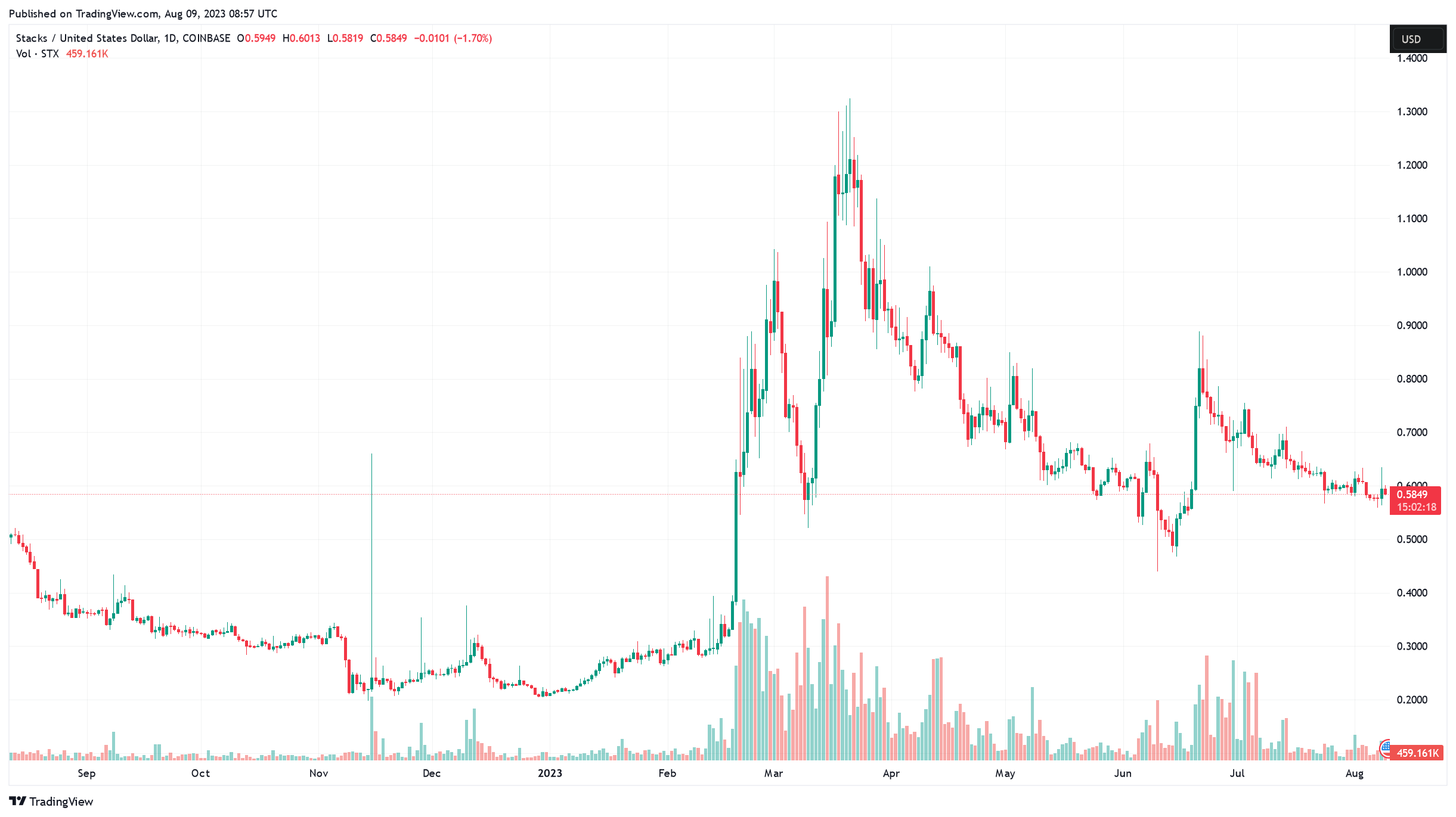
Stack's native token STX traded down 15.26% over the past month. On July 21, ALEX - the most prominent decentralized exchange (DEX) on the Stacks network - introduced its "Decentralized Launchpad." Applications are open to everyone, but holders of the ALEX governance token must approve candidate projects. Upon approval, a launch date is set alongside a fundraising target. On another note, the Stacks Foundation approved some critical bounties related to sBTC. The "Nakamoto release," expected in Q4 this year, will introduce a trustless two-way system peg for sBTC and BTC.
Bitcoin Cash (BCH)
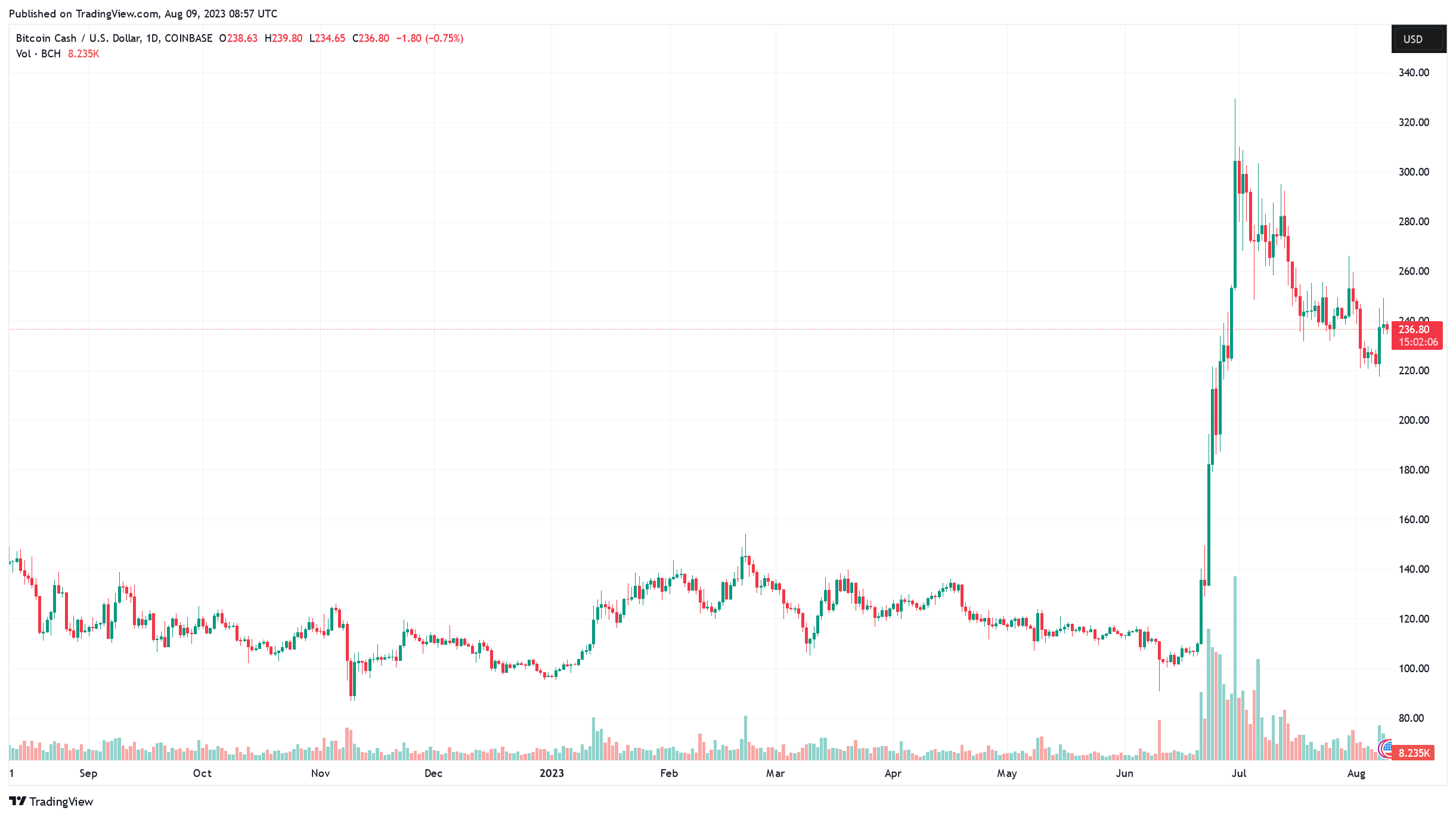
Bitcoin Cash (BCH) traded down 19.12% over the past month, underperforming the broader crypto market. BCH's relative strength index (RSI) was in the "overbought" zone (>70) for the latter half of June as the cryptoasset rose ~171% on the back of its listing on EDX Markets. After this correction, BCH's RSI is hovering around 50. If we look at the futures market, BCH's open interest across centralized exchanges reached $574 million on July 2, a more than 500% increase from the previous month, suggesting that its rally toward the end of June was primarily driven by leverage and speculation.
Fantom (FTM)
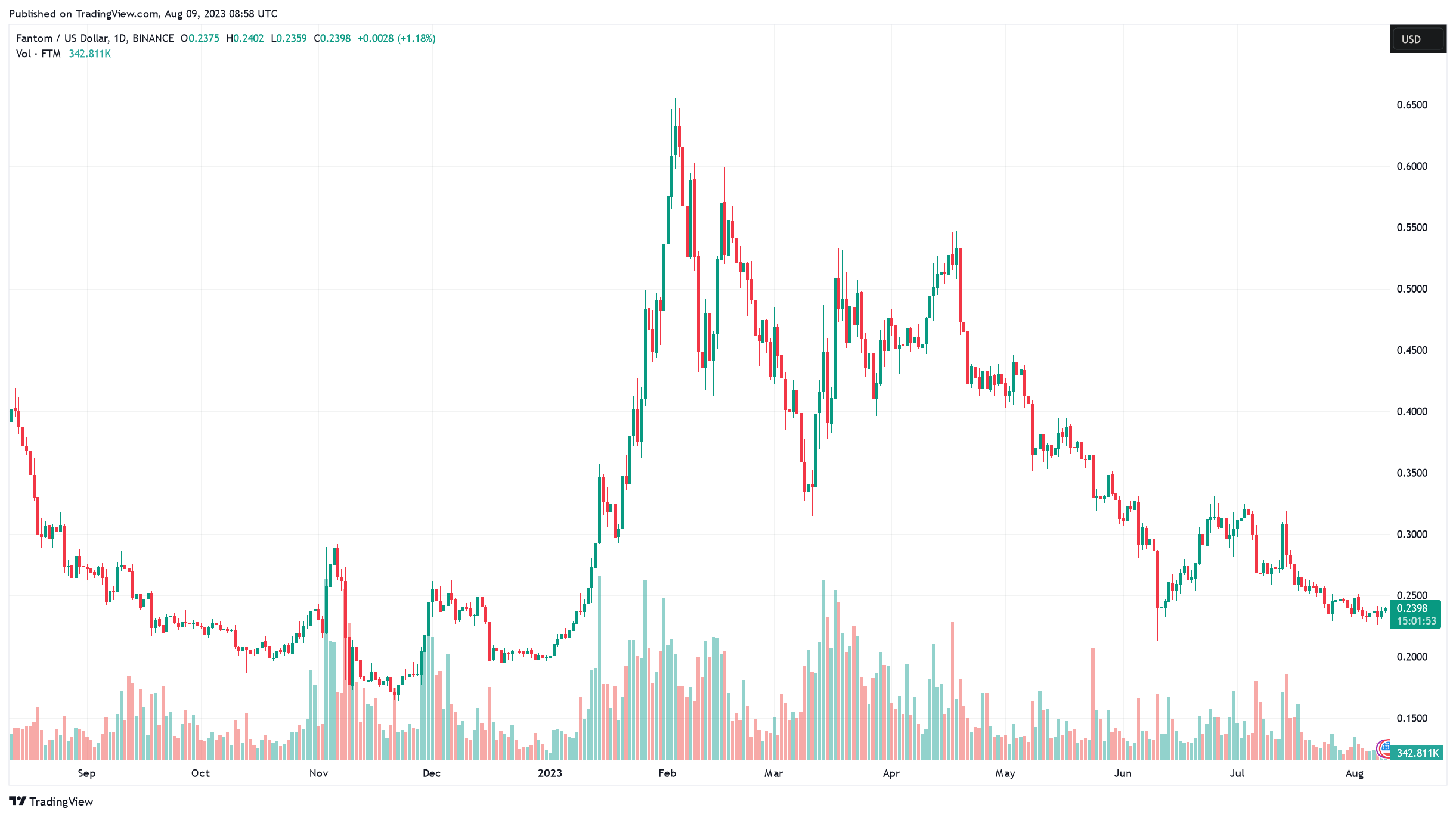
Fantom's native token FTM traded down 22.71% over the past month. On July 6, more than $125 million worth of cryptoassets was illicitly withdrawn from Multichain, with nearly $120 million coming from Multichain's Fantom bridge. A week later, the Multichain team announced they would cease operations due to their lack of access to the platform and the suspicious activities surrounding the company's CEO, Zhaojun. Cross-chain bridges remain a honeypot for hackers, with over $2 billion stolen since 2022. On July 25, the Fantom Foundation announced that LayerZero and Axelar, two interoperability protocols, introduced bridged versions of USDC, USDT, WETH, and WBTC to Fantom.




